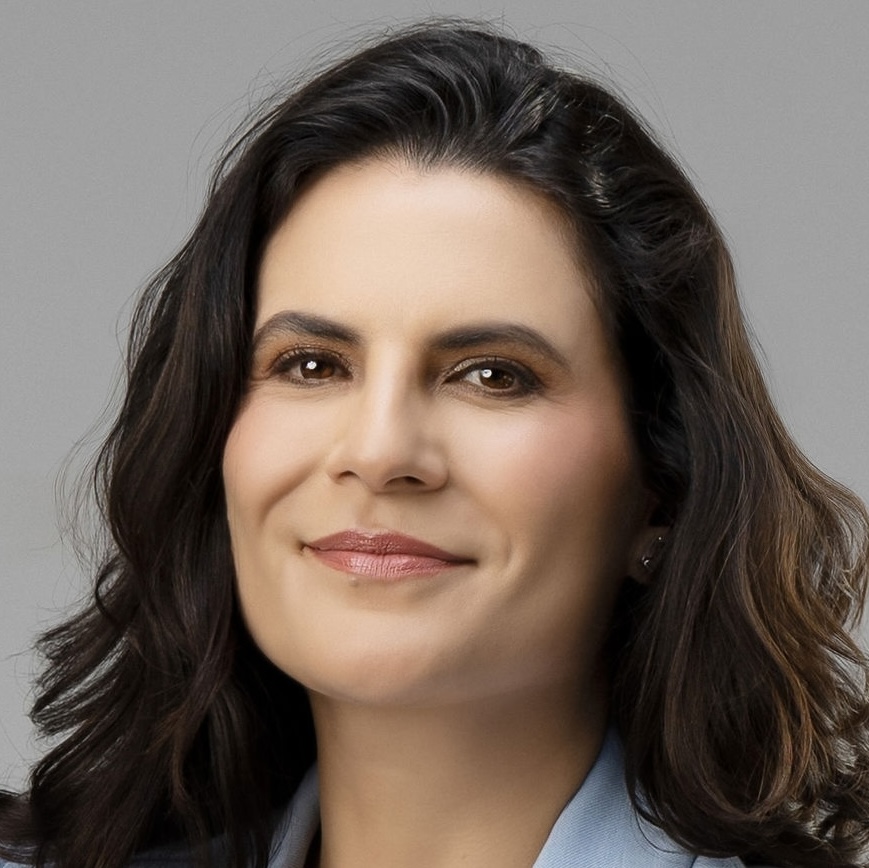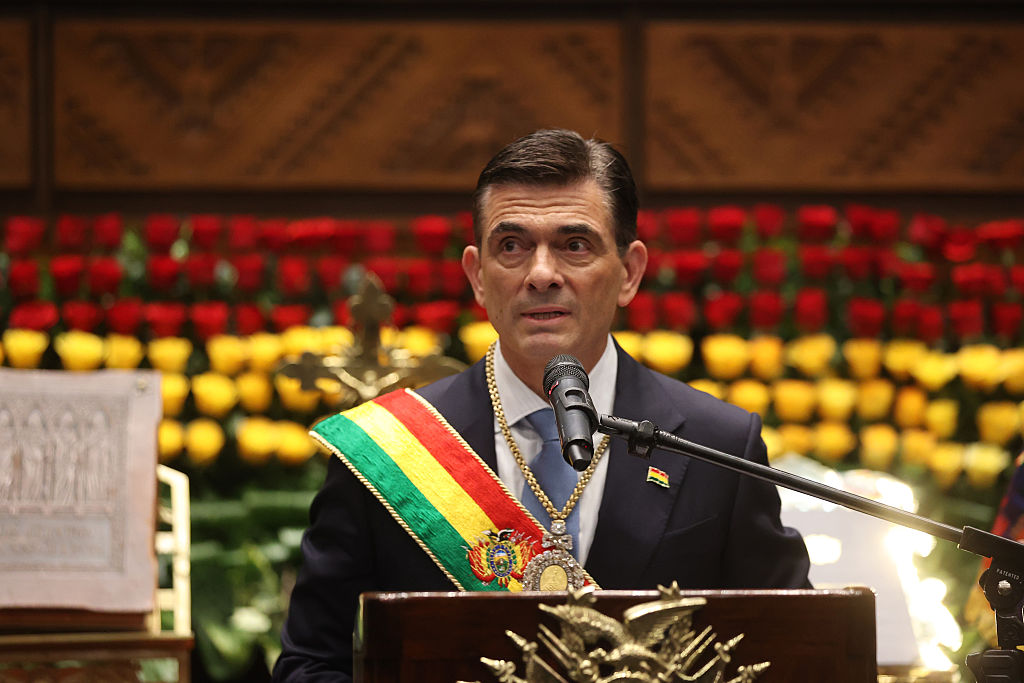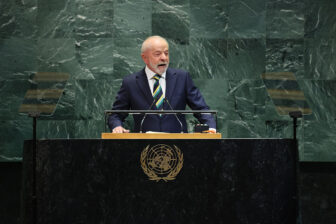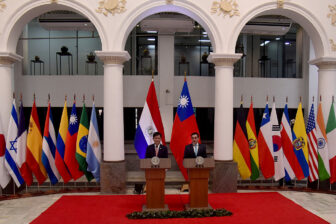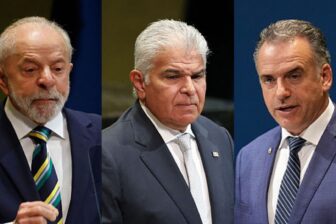LA PAZ—Foreign policy was barely mentioned during Bolivia’s recent presidential campaign. However, since Rodrigo Paz’s historic victory in the October 19 runoff, it has become a priority issue for the country, signaling a policy shift after two decades of ideology-driven diplomacy under the Movimiento al Socialismo (MAS) party.
Before taking office on November 8, Paz traveled to Washington D.C. and Panama, meeting officials from the U.S. Department of State and multilateral development banks. He secured a $3.1 billion loan from the Development Bank of Latin America and the Caribbean (CAF). Back home, the unofficial dollar rate dropped and renewed confidence is in the air. The new government aims to hit the ground running amid high expectations.
Paz’s moves and statements so far indicate that a foreign policy reset is ahead. As the new president attempts this turnaround, he will have to navigate immediate challenges, including domestic anti-U.S. sentiment, economic dependence on China, and Bolivia’s involvement in Mercosur. Bolivia is now poised to significantly change how it engages with the world.
Restoring U.S. ties
“Power.” In just one word, that is how Paz described President Donald Trump in a recent TV interview, hinting at a realist approach to Washington. During his campaign, Paz had already promised to normalize relations with the United States.
The fact that Secretary of State Marco Rubio met with him in Washington and Deputy Secretary of State Christopher Landau attended the inauguration in La Paz is remarkable. Few expected such gestures after two decades of strained relations under the MAS government. Landau announced that diplomatic relations will be restored at the ambassadorial level, reversing former President Evo Morales’s 2008 expulsion of the top U.S. diplomat in the country.
While many welcome the rapprochement, anti-U.S. sentiment in Bolivia remains deep-rooted. Paz’s suggestion that the U.S. Drug Enforcement Agency (DEA) might reengage in Bolivia triggered immediate backlash, especially from Morales and the coca growers’ unions. Although he remains holed up in the Chapare, Morales can still mobilize disruptive protests. Subnational elections will take place in March 2026 and various political forces, including Morales, will want to position themselves as alternatives to Paz’s political party, the Christian Democrats (PDC).
The task in the months ahead will be to rebuild trust with Washington, avoid domestic backlash, and balance other strategic partnerships.
Dependence on China
Under the MAS government, Bolivia leaned heavily toward Beijing, awarding more than one major state contract to Chinese companies, often with little transparency or public oversight. In the absence of U.S. influence, China became Bolivia’s second-largest export destination (after Brazil) and its top source of imports.
Untangling this dependence could be complex and potentially harmful to Bolivia’s fragile economy. So far, Paz has said little about China, except that his government would reinforce diplomatic and commercial relations. He has stated that he needs to review lithium contracts signed with Chinese and Russian companies.
These agreements under the Luis Arce administration remain opaque to most Bolivians and could still hold surprises. Preserving vital economic ties with China while demanding transparency and protecting sovereignty over strategic resources will be yet another challenge for the incoming government.
Under Arce, Bolivia became a BRICS partner country. And while Paz called it a “good trade group,” he would need to pursue full membership to tap into project financing. However, this may not sit well with other partners.
Democratic friends in the neighborhood
On his first day as president-elect, Paz held a video call with Venezuelan opposition leader and Nobel Peace Prize winner María Corina Machado. The call sent a clear message about whom Paz considers Venezuela’s legitimate and democratic representative. And, in his first interview with international media, he reaffirmed that Bolivia’s regional engagement must be grounded in democratic values.
After confirming that Presidents Nicolás Maduro (Venezuela), Daniel Ortega (Nicaragua), and Miguel Díaz-Canel (Cuba) would not be invited to his inauguration due to that logic, Bolivia was suspended from the Bolivarian Alliance for the Peoples of Our America (ALBA). Although Bolivia’s entanglement with ALBA countries is deep and getting rid of its influence might not be easy, the move drew mainly positive reactions at home. ALBA’s economic value for Bolivia has long since faded; from January to August 2025, the country exported only around $3 million to Venezuela and less than $1 million to Cuba.
Mercosur is a different case. Bolivia formally joined in 2024, and its participation in the trade bloc could be Paz administration’s first important test in the region. In theory, Bolivia is now in the process of adapting regulations, but there has been little progress on harmonization to date.
Europe: An old, slightly overlooked partner
The European Union has long been one of Bolivia’s most consistent partners. It has supported election observation missions and mediated during the 2019 political crisis. Moreover, Bolivia’s vast lithium and rare earth reserves are vital for the EU’s green transition. A pragmatic and strategic partnership could promote responsible extraction and governance reforms, and would offer more sustainable alternatives to deals struck with firms from China and Russia.
The upcoming EU–Mercosur trade deal signing in December presents a timely opportunity to re-energize these ties. Brussels and La Paz could strengthen cooperation based on democracy, transparency and sustainability. That is, of course, if the Paz government recognizes the opportunities at hand.
Only eight countries, including Bolivia, enjoy preferential access to the EU market under the GSP+. However, “there is still room to grow and export more,” according to Teresa Ribera, the EU Executive Vice-President for a Clean, Just and Competitive Transition. German foreign minister Johann Wadephul landed in Bolivia on November 10 and highlighted the potential for cooperation, noting that Bolivia’s lithium is indispensable for Germany’s energy transition.
In a press conference in late October, Paz mentioned that he wants to “put the house in order” first, focusing on legal certainty, before continuing negotiations with Mercosur. But with the deal signing expected next month, time is not on his side. The challenge will be to patch up Bolivia’s economy up quickly, without isolating the country from pragmatic regional trade opportunities.
Balancing ideals and interests
During the two decades of MAS rule, the world changed dramatically. The U.S., Europe and China no longer play the same roles, and Latin America’s political tides keep shifting. The Global South is also gaining prominence. This is most evident in Africa’s demographic boom, the African Union’s entry into the G20, and the popularity of BRICS+.
For Bolivia, this means navigating a more complex, multipolar world. Paz’s government is likely to seek good relations with global powers while deepening South-South cooperation. Caution, pragmatism and ideological neutrality: Those should be the guiding principles of a new foreign policy that reinserts Bolivia into the international arena as a serious partner, while balancing democratic principles with economic realism, and opening the country to cooperation with all.


